WWPH WRITES ISSUE 86


WWPH Writes 86…This issue features two D.C.-based writers expansively writing outside of their more familiar genres– poetry from Bernardine ‘Dine’ Watson (known to many of our readers as the author of WWPH’s 2023 award-winning Transplant: A Memoir ) and David Ebenbach writing in the young adult genre, with a novel excerpt from his acclaimed Possible Happiness.
We also have some nice new news to share. FOR THE BLESSINGS OF JUPITER AND VENUS by Varun Gauri, our 2024 Fiction Award Winner, is one of National Public Radio’s BOOKS WE LOVE 2024! “Gauri proves himself to be a wonderful storyteller,” notes reviewer Martha Anne Toll. We agree!
More nice news! WWPH is now on the social media site BLUESKY. Please find us there at @wwph.bsky.social.
AMERICA’S FUTURE is now open for submissions. We invite you to send us your poetry, fiction, and creative nonfiction for inclusion in our biggest-ever anthology of poetry and prose. Write the future. The deadline is December 31st. More details below.
Lastly, think of supporting your Washington Writers’ Publishing House on this Giving Tuesday! Link to our 50th-anniversary fundraiser below.
Have a healthy and happy Thanksgiving all! Read on!
Caroline Bock & Jona Colson
co-presidents/editors
Washington Writers’ Publishing House
WWPH WRITES Poetry
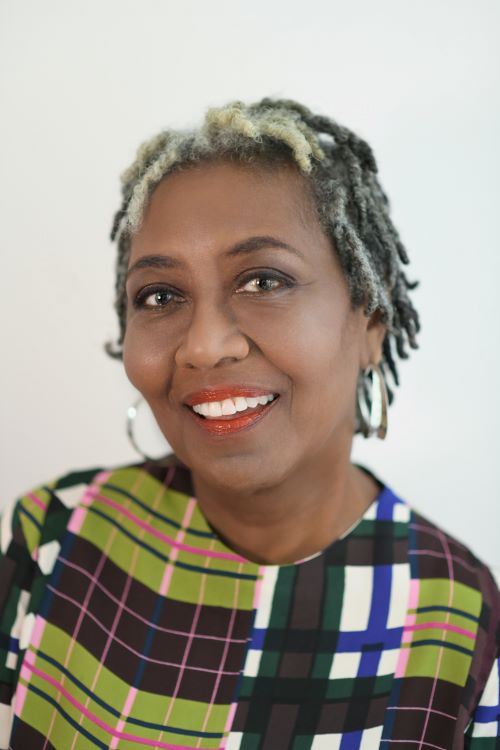
Bernardine (Dine) Watson is a nonfiction writer and poet living in Washington, D.C. She has written on social policy issues for many major foundations and nonprofit organizations, the Washington Post Health and Science section, and She the People blog. Dine’s memoir Transplant won the 2023 Washington Writers’ Publishing House Prize for nonfiction. Transplant also appeared on National Public Radio’s 2023 list of Books We Love. Dine was selected by Poets and Writers as one of their “5 over 50” debut authors for 2023 and was featured in the magazine’s November/December 2023 issue. Her poetry has been published in Beltway Poetry Quarterly, Bourgeon/Mid Atlantic Review, and Gargoyle Magazine. In 2023, two of her poems were nominated for the Pushcart Prize. Dine is a member of the 2015 class of the DC Commission on Arts and Humanities Poet in Progress Program and the 2017 and 2018 classes of the Hurston Wright Foundation’s Summer Writers’ Workshop for Poetry. More here at her website.
A Longing
(For Reuben)
Never knew you like I longed to
way late to the party
face pressed up
against the window
listening for your honey
songs and syllables
sweet as the end of pain.
Now, when I long to know you, Reuben
I listen for Shepp’s embouchure
the bare breathy whisper
the wild screeching blare.
©Bernardine Watson 2024
WWPH WRITES A NOVEL EXCERPT
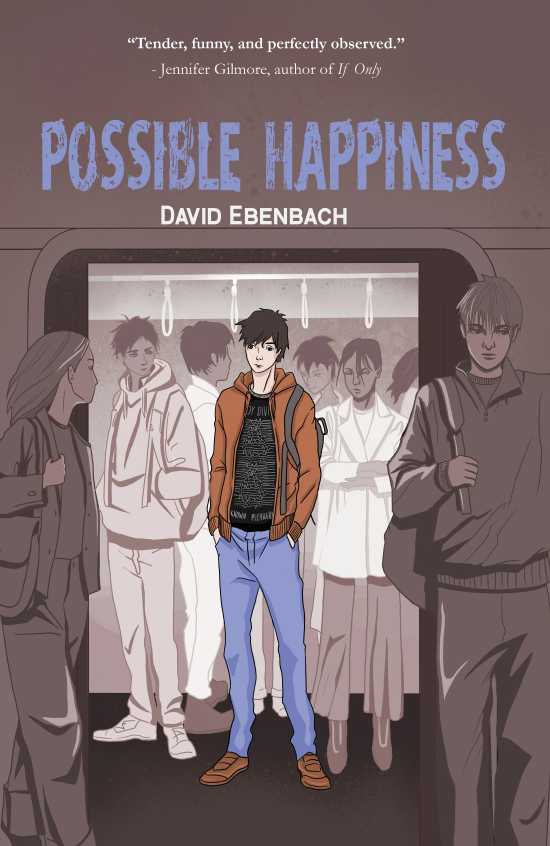
David Ebenbach is the author of ten books of fiction, poetry, and non-fiction, including his WWPH-award-winning story collection Into the Wilderness and his new novel Possible Happiness. He lives with his family in Washington, DC, where teaches and works with faculty and graduate students on their teaching at Georgetown University.
POSSIBLE HAPPINESS is now available everywhere books are sold and directly via the publisher Fitzroy Books at REGAL HOUSE PUBLISHING here.
David Ebenbach’s excerpt from his novel Possible Happiness…from the opening chapter:
One
Jacob was discovered in eleventh grade. Not in a Hollywood way, where he was catapulted to stardom by a movie studio or something, and also not in a murder mystery kind of way, like The remains of Jacob Wasserman were found floating in the Schuylkill River, but more just that he was discovered to exist. It surprised him as much as it did anyone else.
The way it worked was that previously, pre-1989, he had been basically background, walking the halls of Central High School ruminating, mixed in among the crowd, a small, interchangeable piece of the setting of everyone else’s lives. Nobody harassed him, but nobody shouted out his name when he turned a corner like he was Norm from Cheers, either. He just slumped on by, more or less two-dimensionally. Then, in the fall of 1989, he told one joke in class—not even an especially good one—and that started a cascade of events. It was as if suddenly someone turned around and said, Hey—you’re Jacob, right? And then everyone else turned, too, and saw him, and said, Jacob, huh? The extended results of which were that he was discovered to exist in 3-D, already there in front of the world.
In a way, it had started the summer before that.
Jacob had been working summers and weekends at the Philadelphia Zoo since he was old enough to legally be allowed to work, giving kids rides at the pony track in the children’s zoo. That was where he’d met Leron, and Ty, too, who now he rode the subway to school with, almost like friends. Anyway, maybe it was his uniform—red polo shirt and tan shorts—or his hair, which wasn’t as curly since he had gotten a short and preppy cut in June in the summer before his junior year, or the fact that he kind of liked working at the zoo and so was a little happy, or some other thing, but actually he was first discovered at the zoo. It didn’t count as the discovery, because most of the kids working there didn’t go to his high school, so his newfound status didn’t transfer back to Central. But still there was this surprising thing where people were noticing him. Specifically, girl people. More than one. When he discovered that a few of the girls working there thought he was cute, Jacob felt like his life was being pushed into motion all of a sudden. Zero to sixty. Or twenty, at least.
He’d even had a girlfriend that summer. Only four weeks, and they spent about half of that time trying to figure out how making out worked—what exactly were you supposed to be doing with all the different parts of your face?—but nonetheless it was a very big first for Jacob. He felt that he’d crossed a line on the journey to manhood there. A no-turning-back kind of line.
Dating, Jacob learned, apparently showed you sides of yourself you hadn’t ever thought much about. For example, his summer girlfriend—her name was Barbara—had thought he was funny; she told him so. His mother had always told him that, too; it was his jokes that would cheer her up when she was down. But this was the first person outside the family to notice. Barbara said it a lot, in fact, including at times when he wasn’t intending to be funny. Like one time when they were eating their bag lunches on a bench in front of the tiger enclosure—she worked at the zoo, too—and he said, “I wonder what it’d be like to be one of those tigers. I think I’d get tired of pacing around.” He’d really meant that seriously—there was something a little painful and unsettling about the pacing—but Barbara said, “You’re funny.” That was a pretty good example of how their dynamic went.
But he had brought this slight increase in his confidence and this perception of himself into eleventh grade, and sometimes he would notice a moment in class that had the potential for humor, and then in his head he’d tell a joke about it. Like one time Ms. Terrell, the Elementary Functions teacher, was pointing at the letter x she’d chalked on the blackboard, and she asked “What is this?”, looking for the word variable, and Jacob, in his mind, called out “A blackboard!” That kind of thing. His grades were high enough that teachers would have probably just rolled their eyes and kept going if he did say some of this stuff out loud, but what would the other kids do? Would they laugh? What would Jacob feel, if they did?
Reprinted with permission of Fitzroy Books, copyright 2024.
WWPH NEWS
Write what’s next. We are seeking your poetry, fiction, and creative nonfiction for a new anthology slated to be published in September 2025. Write our future! Submit your poetry, fiction, creative nonfiction, and works in translation to AMERICA’S FUTURE. Detailed prompts and guidelines are available here.
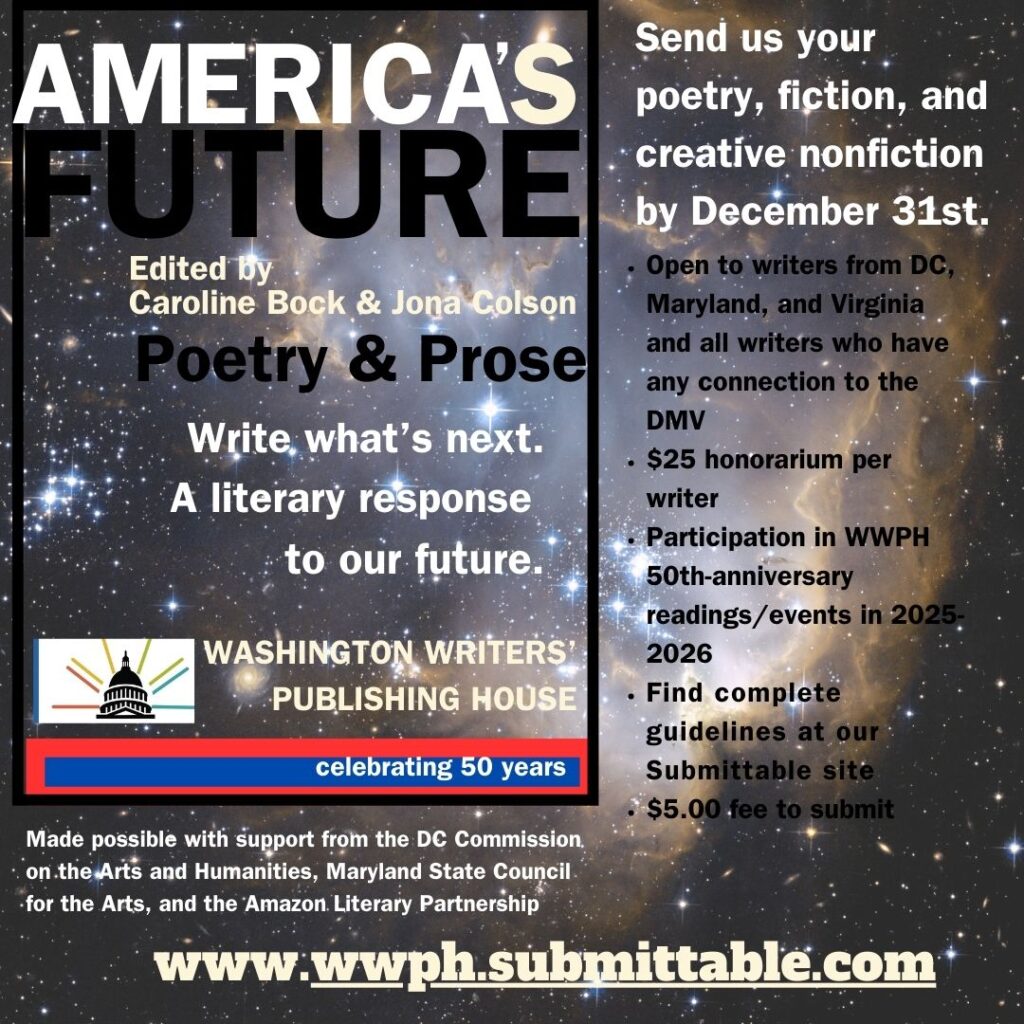
WWPH is offering paid WWPH Fellowships to interested undergraduates, graduate students, or recent graduates. A big thank you to Dr. Jean Feldman for underwriting this program. DEADLINE IS NOVEMBER 30th. More information and an application can be found here.
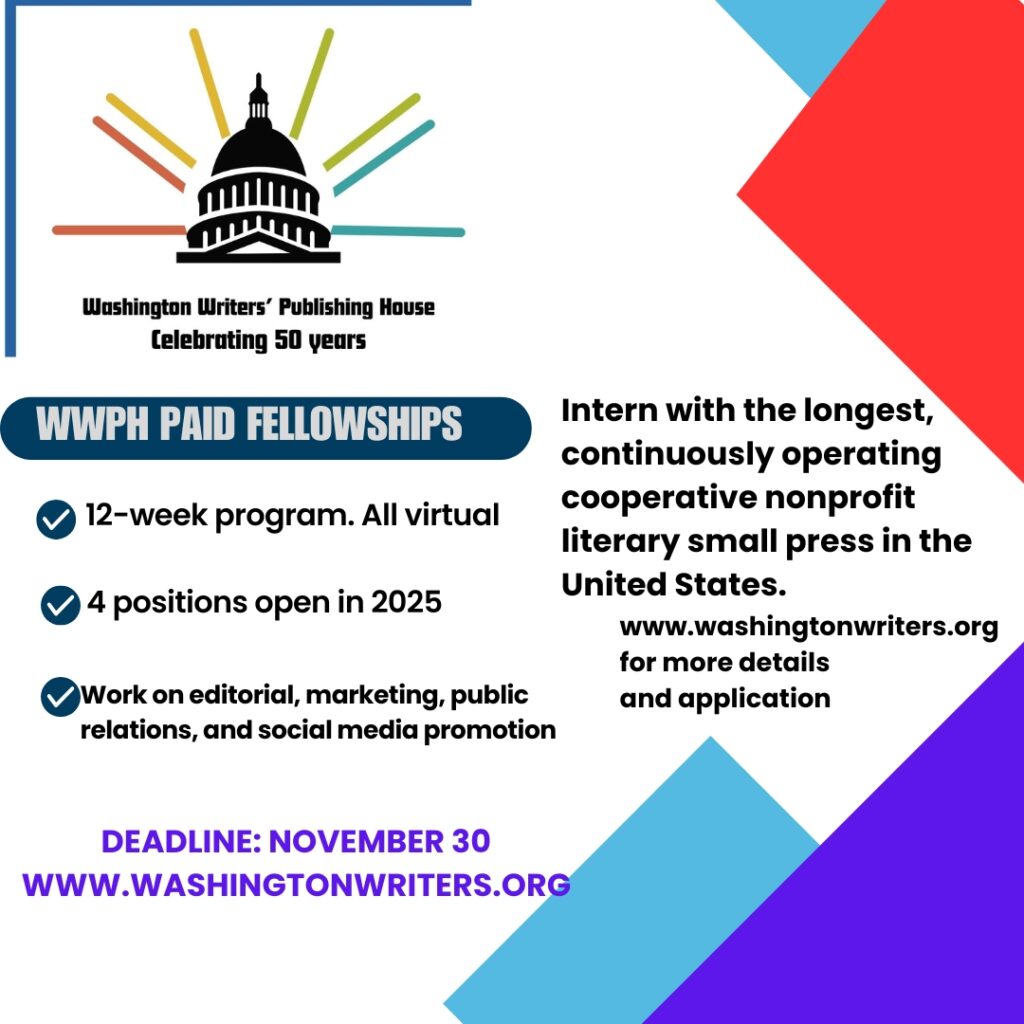
#GivingTuesday. Please consider a year-end donation. In 2023, we raised over 5K and jumpstarted our anthology, AMERICA’S FUTURE (now accepting submissions and set to be published in fall 2025); in 2025, we celebrate our 50th anniversary — and we hope to be here as a vital and vibrant part of the DMV literary community for another 50! Please help us support local writers and continue to pay it forward.
All contributors will be noted and celebrated in our America’s Future anthology. Please consider a year-end, fully tax deductible (we are a 501c3 nonprofit). Details on how to donate here. All contributions are very appreciated!
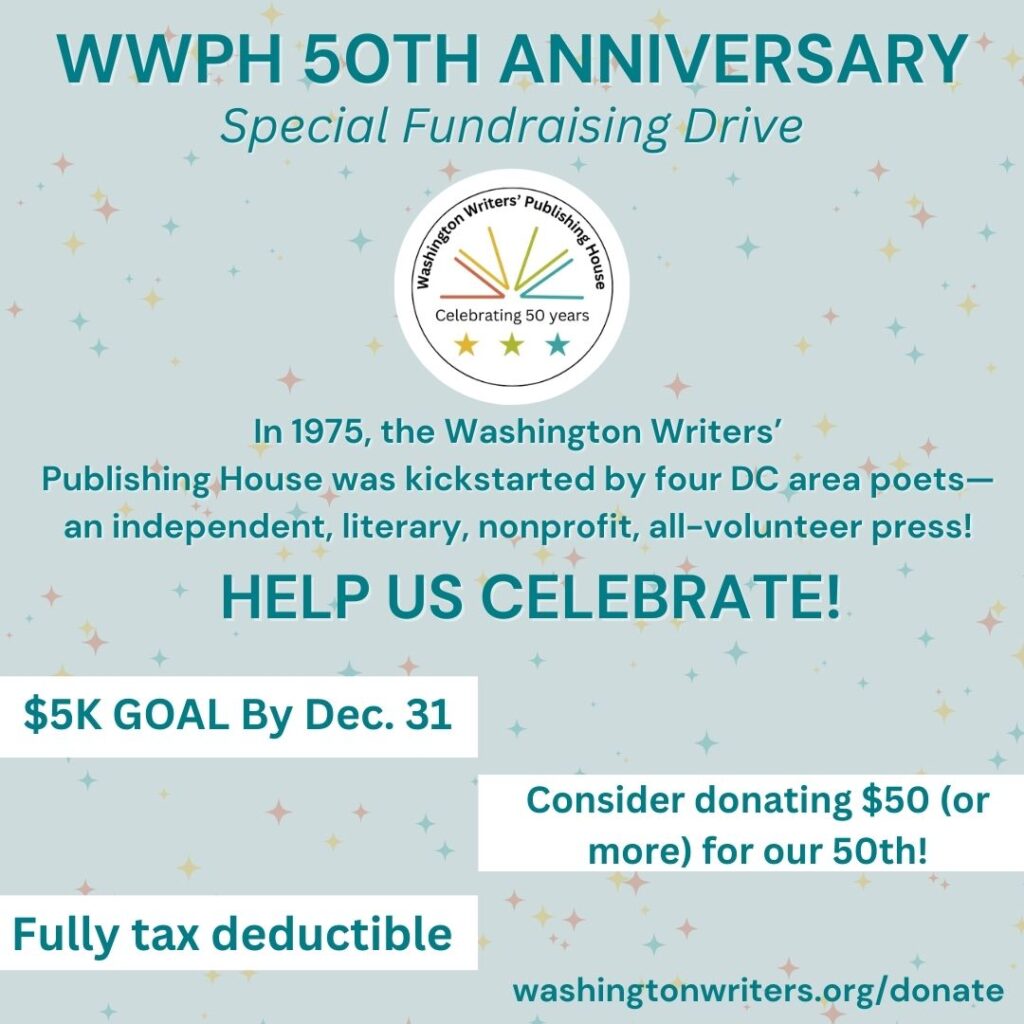
]
Thank you all for being part of the WWPH community! A Happy Thanksgiving Day to All!

